A career as a construction contractor might lead to a lifetime of financial security, fulfillment, and plenty of variety in work.
However, not everyone, after earning their license as a contractor, knows how to best build a business.
Becoming a successful contractor requires many more skills than those that are directly needed on the job site.
The required soft skills include strong goal-setting, networking with other construction professionals, becoming adept at making estimates, and many other skills.
Let’s examine these more closely. Just one well-implemented tip can help establish you and your company in a highly competitive market.
In this article...
Set Goals That Define Your Success
What does success mean to you and your company?
Defining it first, as well as setting short-term and long-term goals, can help you set out to become a successful construction contractor.
Without measurable goals with actionable steps (such as, for instance, submitting two proposals a week in order to increase revenue across an entire year), it’s easy to become overwhelmed.
You may start to feel as if you’re simply running in all directions, chasing work, and wondering why you aren’t advancing past your peers.
Organizing your effort creates efficiency, which, in turn, gives you more time to grow your business.
For example, a key trait of a successful construction company is the ability to maintain a strong safety record. This isn’t a result of chance.
Excellent safety records are only achieved with training, reliable equipment, and diligence on the part of all employees on the site.
By setting the specific goal of, for instance, going an entire year without any code violations, you give your team a definable target.
Studies have shown that setting specific goals, rather than vaguely aiming to “do better”, is a significant booster when it comes to finding motivation for difficult tasks.
This chart illustrates the SMART method of defining and attaining goals:
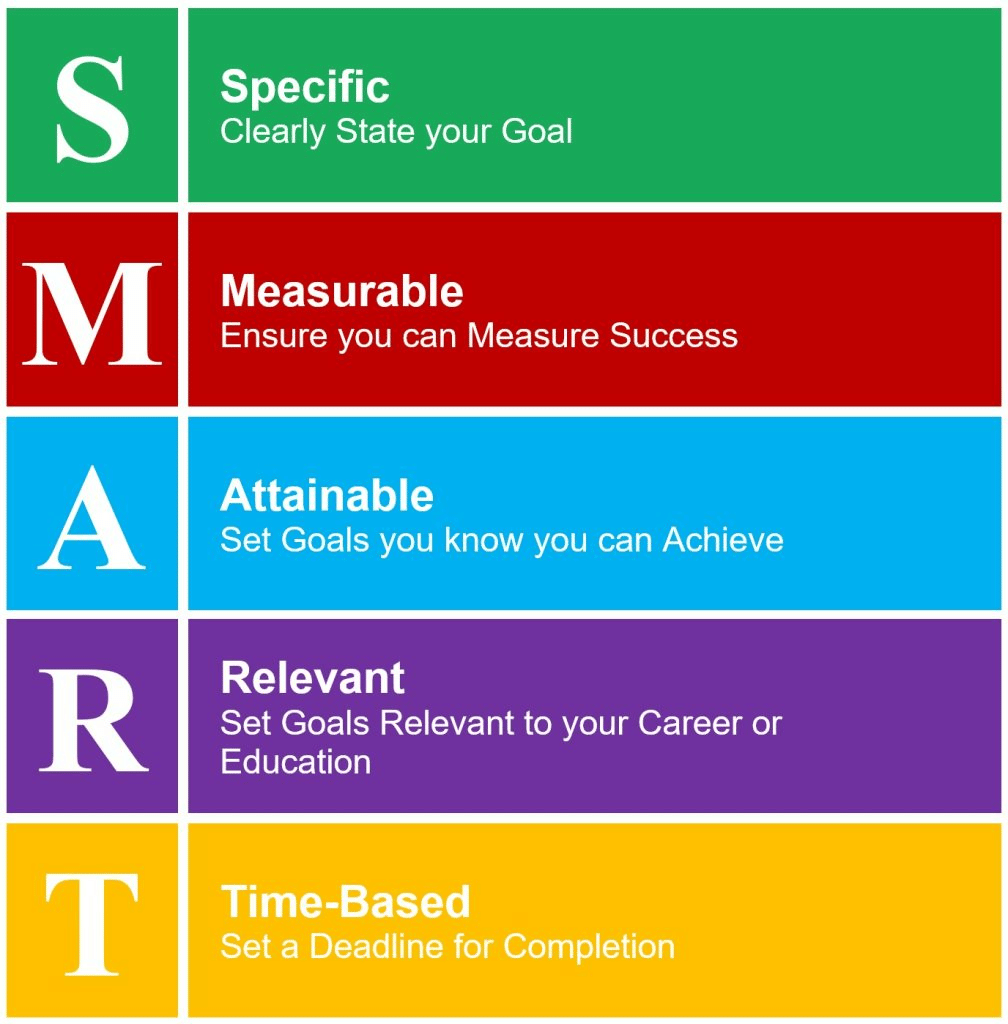
This acronym points out that a goal must carry specificity. Otherwise, it is difficult to know where to direct your efforts.
Goals must also have some sort of objective measure enabling you to chart and track progress, a practice that often supplies motivation.
Third, attainable goals are a must—reaching for a nearly-impossible objective is merely setting your team up for demoralizing failure.
Relevance is also important.
For example, if you are a brand-new and untried contractor, it’s unlikely that you will secure a contract to take on a new school building, but beginning with a residential bathroom renovation is manageable.
Finally, your goal must have a deadline for completion. A time-based goal prevents procrastination and helps to move your efforts along.
Decide on Your Marketing Strategy
A great marketing strategy is critical for landing more construction clients and becoming a successful contractor.
Most new contractors cannot afford a splashy ad campaign, and many established companies are supported by word-of-mouth.
Wherever you are in your career, your time management as a contractor needs to include space dedicated to marketing.

Websites, traffic building, and using social media are often mentioned as must-haves for a modern construction business.
This may seem intimidating to some contractors. However, the good news about the online media revolution is that spreading information is relatively inexpensive and widely available.
Becoming active on social media and regularly updating a blog with unique advice are all free and sustainable ways to spread the word that your company deserves a look.
Marketing is also as simple as attending neighborhood meetings, building a managerial habit of handing your business card to new acquaintances, and taking advantage of free ad placement, such as bulletin boards in coffee shops.
Once your company has grown a more robust budget, it will benefit from paid advertising and more aggressive forms of marketing.
A major aspect of marketing is defining what sort of niche you fill, or what makes your company different from others.
For example, if you excel in flipping newly-bought homes for resale, emphasize that skill set.
If you have experience in building with green materials or working on historic buildings, make it easy for the clients to whom that is important to find you.
This targeted approach is usually more successful than attempting to fulfill every possible job for every possible client.
Concentrate on what you know best and the tasks you can complete with the most efficiency.
You can always branch out into other specialties that interest you as your business expands.
When working out a marketing strategy, it’s usually best to concentrate on a significant strength while also reminding potential clients that you can complete a number of jobs, even if it means partnering with a subcontractor.
This is when active social media accounts come into play.
Sharing pictures of a variety of jobs, in addition to highlighting your one-of-a-kind characteristics, can organically let customers know about your range of capabilities.
Network With Other Construction Professionals
There’s no digital replacement for networking with other construction professionals and taking the time to build and nurture positive relationships with others in your field.
Assembling a network of subcontractors, land developers, fellow contractors, and other construction professionals will help you get more construction projects through referrals.
Keep in mind that networking is a special form of relationship.
It is wise to occasionally do favors for others in the field, even if you might not receive payment or reciprocation.
Simply proving yourself as a reliable member of the community can pay off in unexpected ways.
It is important to remember, therefore, that you must act professionally at all times while networking or participating in business-related activities.
This establishes your reputation of being trustworthy and reliable.
If you are not sure how to network, a good place to start is joining a construction association. Construction associations provide an immediate support system for you and your teammates.
You will have access to the wisdom of more established contractors to rely on, and a space to exchange tips and support with others in your position.
As this graphic shows, the benefits of joining a construction association are varied:
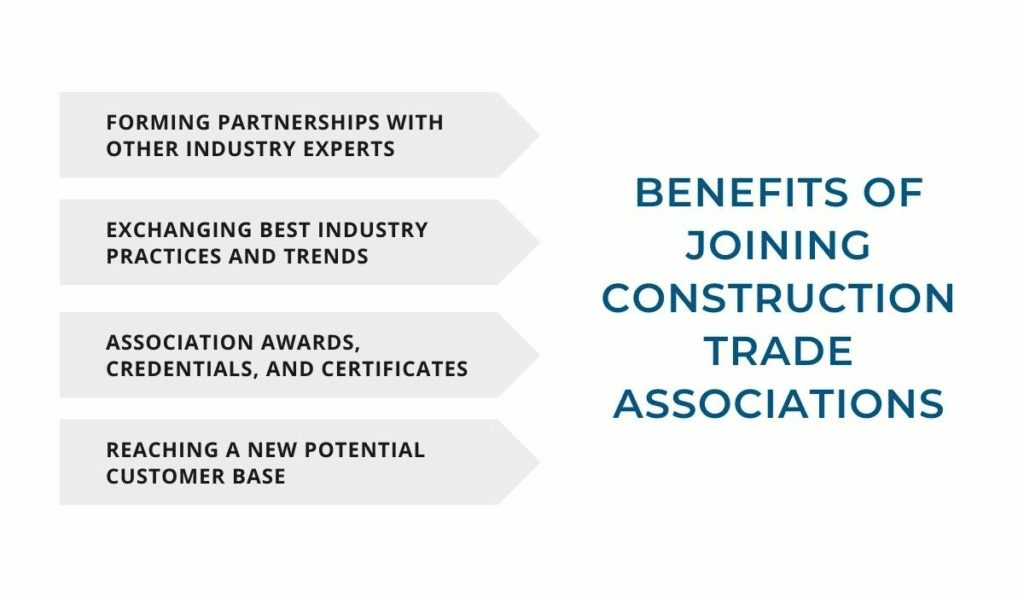
Dedicating time, service, and resources to a construction trade association not only offers the opportunity to form partnerships with others outside of your speciality, but it’s also a good place to find subcontractors or burnish your company’s credentials.
Attending construction networking events is also an excellent way to develop a mentor relationship with an experienced contractor who can guide you in your career growth.
Get Better at Making Estimates
Slapdash or inaccurate estimates can prove devastating to a company, especially one still establishing itself.
Contractors must consistently produce accurate estimates to become– and stay– successful.
Submitting accurate estimates is also vital to completing construction projects on time and within budget.
They help manage a client’s expectations and ensure that your project has enough cash flow to complete the job efficiently.
Many factors are at play when it comes to building a construction budget.
Comprehensive estimates include the costs of labor, equipment, materials, contingencies, and other resources necessary to complete a construction project.
It’s also important to factor in tech costs, office overhead, insurance premiums, and the price of site security.
This list includes just a few other entries that should appear in a construction estimate:
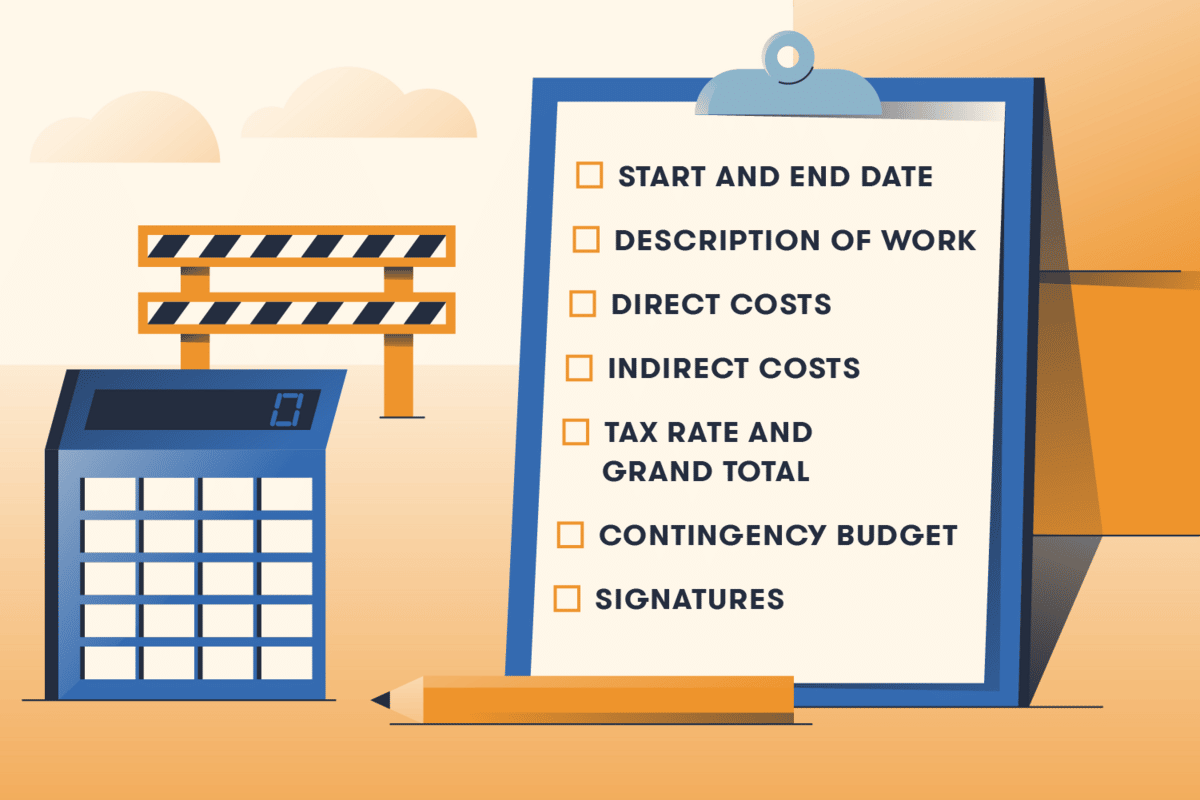
Preparing a construction estimate usually becomes easier with time, guidance, and experience, but sometimes longtime contractors can become complacent and fail to keep track of current prices, technology, and best practices.
No matter how small or large your construction company is, you can always benefit from putting as much effort as you can into preparing your estimates.
It’s best to solicit the input of others and to perform solid market research to ensure an on-target estimate.
Work With Reliable Subcontractors
Working with reliable subcontractors is essential for becoming a successful contractor.
Hiring the right subcontractors is just as important as making accurate estimates when it comes to completing construction projects on time and within budget.
Contractors can reduce the risk of subcontractor default by prequalifying their partners and continuing to work with those who have proven themselves to be reliable.
Here’s one of the crucial considerations when choosing a subcontractor:
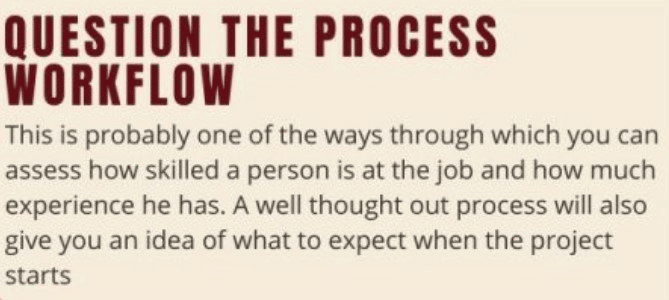
Talking to a potential subcontractor about his or her process workflow can help you determine if they’re a good fit for your company.
It’s difficult to fake a conversation with someone who is familiar with the subject matter, and simply having a chat about the project might help weed out those who might prove a liability for your company.
When labor shortages loom, it can seem like an easy solution to work with a subcontractor in spite of their shady reputation, or business practices that raise red flags.
However, a construction job isn’t just your own project—it is a group endeavor that also includes the client.
Agreeing to work with those who are unsafe, regularly use underhanded tactics, or stand to bring scandal to your company is always a huge risk.
Even though your subcontractor is a separate business entirely, it’s the name of your organization on the build and the main contract.
Clients don’t like to hear excuses or suffer the potential unwanted consequences of your choice to work with an unreliable subcontractor.
Take Care of Your Tools and Equipment
Taking proper care of construction tools and equipment contributes to the success of a contractor because these items are critical for project completion.
Performing regular preventive maintenance is cheaper than having to repair or replace tools and equipment, and doing so also saves time.
Without proper maintenance, tools and equipment are at higher risk of breaking down in the middle of a construction project.
You also gamble with voiding your equipment’s warranty. Frequent breakdowns can quickly lead to overtime or an unending stream of expensive equipment rentals.
Too much of this quickly results in project delays, cost overruns, and frustrated clients.
Some contractors confuse reactive maintenance with preventive maintenance. This illustration delineates the difference between the two:
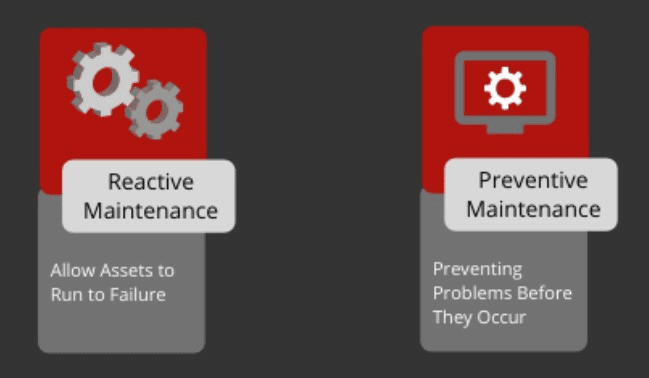
Reactive maintenance is rarely predictable. Preventive maintenance, on the other hand, occurs on a regular basis to ensure an asset performs at top capacity for as long as possible.
It might include oil changes, deep cleans, or retreading.
It can sometimes seem frustrating to keep track of varying maintenance actions on a large number of machines and tools, but investing in a robust asset tracking service like GoCodes drastically eases this burden.
An asset tracking solution can automatically schedule technician appointments, store operator’s manuals, or issue alerts when preventive maintenance actions are due.
Taking care of your hardware is taking care of your business.
Conclusion
Becoming a successful contractor involves a great deal more than possessing technical skills and knowledge about construction.
It involves setting actionable goals that define your success and deciding on a marketing strategy.
You must also network with other construction professionals and take the time to render a realistic estimate for your clients.
Finally, carefully choosing subcontractors and taking care of your tools and equipment can help ensure a long-term enterprise.





